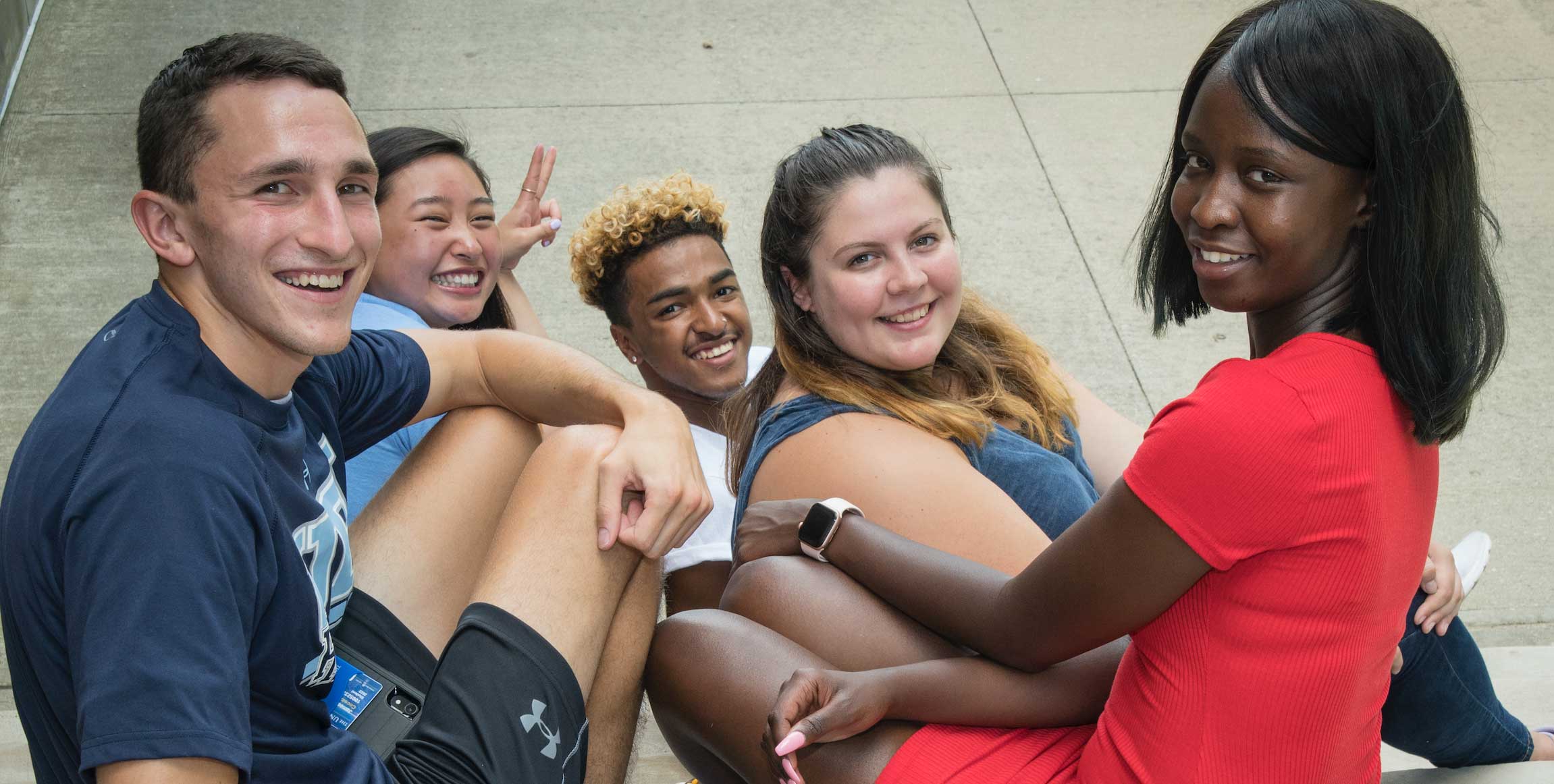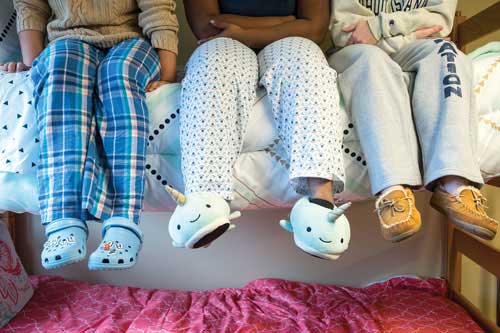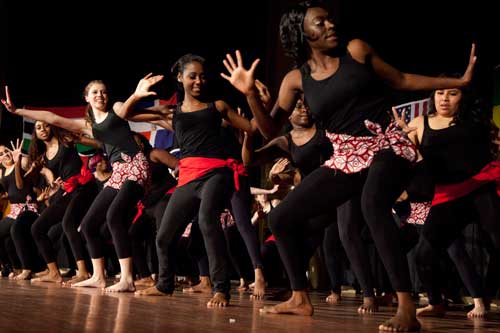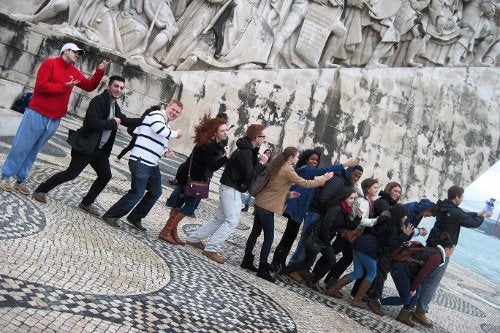
URI RAs James Cocozza, Claudia Yao, Devon Lyon, Alex Obiurka, and N’deye Yacine Dabo
When first-year students arrive on Resident Assistant James Cocozza’s floor, they’ll find welcoming letters in their rooms. Weekly emails about selecting classes, campus resources, and upcoming events will follow. If residents’ birthdays fall within the academic year, they’ll find Cocozza has decorated their doors with birthday banners. Personalized notes of encouragement from him will arrive during midterms and finals.
In between, there will be in-person check-ins and offers of help in choosing classes or joining clubs. Cocozza’s says he’s even taught first-year students how to tie their ties during fraternity recruitment week.
Not one of these acts is required of him as an RA, but, Cocozza says, “I want students to feel important and supported. I will support students at their highest and lowest points.”
Fellow RAs N’deye Yacine Dabo ’21 and Alex Obiurka ’21 nod in assent. “Those little things make them realize that you care,” Obiurka says.
Cocozza, Dabo, Obiurka, along with Claudia Yao ’22 and Devon Lyon ’21, arrived on campus in mid-August, two weeks before first-year students, for their RA training, which covers policies and procedures addressing myriad topics: mental health, mediation, tolerance, respectful and responsible discourse, fire safety, and domestic violence, among them.
And while they are all outgoing and enthusiastic, several in the group said their decision to become an RA came of struggles they experienced when they were first-year students.
“Our generation has a lot more anxiety,” Dabo says. “Students see us as leaders and think, you’re so perfect, when, in reality, we’ve all struggled.”
Though a Rhode Island resident, Dabo felt she’d entered a different world when she arrived at URI. “I was looking for a home,” she said. “Becoming an RA gave me a support system and lifelong friends. I found where I belonged at this university.”
Lyon became an RA because of the care he was shown in his first year. “I felt lonely and isolated at times and it really helped,” he recalls. “I wanted to do the same for someone else.”
“I’ve had semesters where I’ve wondered if I could do it all,” Dabo adds. “You struggle with imposter’s syndrome. I want first-years to know they got into URI because they are capable. They are here because they are meant to be here.” When they really believe that, she says, it makes a huge difference.
Obiurka nods in agreement. “I felt I could be the person to build that type of community for first-years. I could get them comfortable.”
All agreed that an RA’s work is non-stop. Test anxiety, roommate issues, homesickness: these are issues that happen 24/7, they say. And they’ll be there when they do.
“I will never stop being their RA, and I want them to succeed no matter what,” Yao says.
And what would these RAs say to parents? “We’re here to make sure that your child has the best college experience they possibly can,” Dabo responds. “We’re advocates for your child.”





